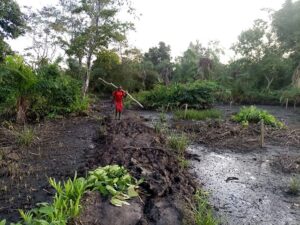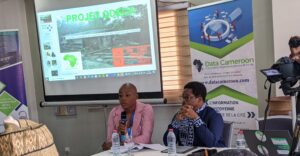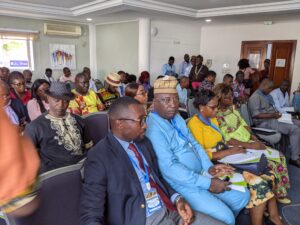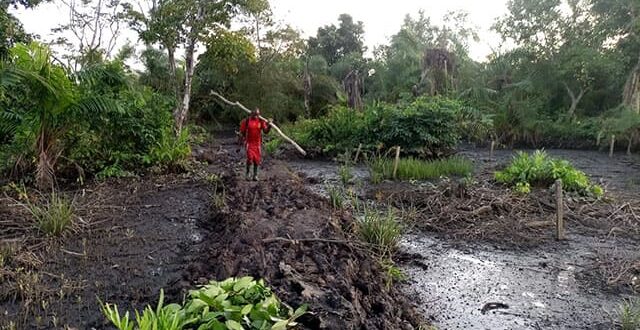By Sandrine Akeabeh
___________________
Results of an Investigation on mangroves depletion in Douala, Limbe and Kribi, carried out within the frame work of the Open Data for Environment and Civic Awareness (ODECA) indicates that 31% of mangroves have been depleted in Bonaberi-Douala, Littoral Region of Cameroon within the last 5 years, with 6.2 % of the depletion recorded per year. This revelation was made during a workshop that took place, December 12, 2022, in Douala-Cameroon, organised by ADISI Cameroon, with funding from Centre for Investigative Journalism (CIJ) of the University of London, as part of the Open Climate for Reporting Initiative (OCRI).

The workshop was aimed at raising awareness on the disappearance of mangroves on the West African coast, as a strive to limiting the destruction of the ecosystem and saving those under threat. It brought together some civil society organisation leaders, journalists, private and public organisations, national and international organizations working on environmental issues/climate change, public administrators and the media.
Bonaberi, according to statistics, is one of the areas experiencing the highest rate of mangroves depletions along the Wouri Estuary, most especially in the Mambanda neighbourhood. “Rapid urbanization, government projects and the ongoing Anglophone crisis that has induced the massive influx of Internally Displaced Persons (IDPs) into Bonaberi are some of the factors causing loss of mangroves in Bonaberi and along the Wouri estuary as a whole, as we discovered during our investigation,” Mathias Mouende Data Journalist of le jour newspaper said. He called on the Government and environmental non-profit organizations to engage in regenerative projects for the protection and restoration of mangroves.

One of the high points of this workshop was a round table discussion on the theme: “The Disappearance of Mangroves Ecosystems Ineluctable; Causes, Manifestations, Consequences; and How to Assess the Level of Threats and the Putting in Place of an Urgent Effective Response Plan”. This discussion was organized as a sensitization and advocacy mechanism for the government and stakeholders involved in mangrove forests, draw attention to dangers and damages of mangrove loss, according to Paul-Joel, Executive Director of ADISI Cameroon.

The ADISI boss noted that the depletion of mangroves has brought about a drastic reduction in the population of fishes, and equally transformed many areas into swamplands. A marine science teacher and principal researcher of the Douala City Development Project, Dr. Onguene Rapheal, added that “in 100 years, a good number of the population will end up in the sea if actions are not taken now”.
Mangroves constitute an important part of the ecosystem, and provides natural infrastructure and protection to nearby populated areas like inhabitants living along the Wouri Estuary. It helps to prevent erosion. It is hoped that results of this survey will spur up coercive actions for the conservation of the mangrove forests, which is a carbon sink and has considerable impact on the fight against climate change.







